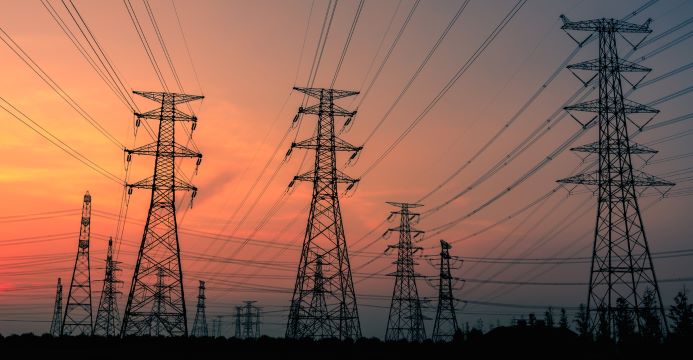
Inspired Special Market Commentary
Published on March 9 2022
UK energy markets are currently increasing at an alarming rate and growing levels of extreme volatility are being seen. Cold Chain Federation member Inspired Energy would like to provide you with an update as to what the key factors are and what contracting options you should look to consider now to best protect your business.
What is happening in the market?
- Even before the Russian invasion of Ukraine, UK energy prices had hit record levels due to a raft of factors including post-COVID recovery and unfortunate weather conditions.
- The war in Ukraine and the potential for disruptions to important Russian energy supplies has added huge premiums to the markets.
- Hopes of the Nord Stream 2 pipeline coming online any time soon are all but abandoned.
- Front month gas prices have seen extreme rises to hit 800p/th (27p/kWh), before dropping by nearly 300p/th within the same day (Mon 7th March), as the markets panicked about the potential supply disruption, either from sanctions or as a retaliatory move by Russia. Whilst the gas still flows, Russia makes more and more money as a result.
- President Biden has announced (Tue 8th March) restrictions on the US importing any Russian oil and gas. The UK and the EU also made commitments to reduce reliance on Russian energy, but importantly these are over extended time horizons. As such, there has been no price rise due to this and in fact, gas prices have dropped.
- There are large premiums in prices now right out to March 2023, as traders assume these issues are likely to drag on longer term. The impact reduces the further ahead you look, with Winter 2024 available to buy at just one-fifth of the value of the front month.
- Europe has also introduced more stringent requirements to hit 90% gas storage by Winter 2022, increasing demand and prices for this coming Summer.
What could cause prices to rise further
- Markets have reached these levels without any disruption to supply. If we were to see true physical disruption to EU supplies the markets will undoubtably see a further extreme reaction (at least initially), as parts of Europe would struggle to meet demand from other sources – more than 1,000p/th is not out of the question.
- The worst of this reaction will be on nearer term markets but will feed through across all periods.
What could cause prices to stabilise or drop
- In the short term a cut in supply is likely to result in demand reductions from European industry (either due to price or enforced), this provides a price limit, albeit at an extreme level.
- Equally long-term price rises at this level must be considered unlikely without significant demand destruction and potentially a recession, ultimately resulting in lower pricing.
- Prices are moving so quickly that the true value is hard to judge. Supply disruption risk has already been “baked in” to the markets to an extent, limiting upside.
- Carbon prices have dropped significantly as speculators look to exit the markets, fearing demand reductions. This factors into UK energy prices.
- A diplomatic solution may feel unlikely right now, but if achieved would see huge drops, although Europe will likely still look to reduce reliance on Russian gas long-term.
- Western leaders are racing to find supply solutions from other sources, but these are unlikely to be sufficient for this year if we see a full cut.
What should I do if I have a renewal due this year?
- Given the unpredictable nature of this conflict and the resultant price movement, even within a single day, Inspired Energy is not able to give a definitive instruction as to how best contract your energy. We can present the facts and choices available to you and work collaboratively to agree on a preferred route forward.
- However, we must consider that locking into wholesale prices potentially over 10x higher than the last contract on a fixed price deal is unattractive to many businesses and could even jeopardise their ability to operate in the long term.
- Additionally, many suppliers are currently not offering any fixed contracts or are adding extreme risk premiums, due to the volatility.
- Therefore, our primary recommendation is not to wait and hope that prices do come down for a fixed renewal, even if the renewal is not until October. Our recommendation is to consider a flexible contract. For the largest consumers an individual bespoke buying strategy can be devised. For everyone else, our Collectives are available where clients are grouped together to give us a larger volume to allow us to buy on the wholesale market flexibly.
- This allows us to spread the risk over multiple points, not leaving complete exposure to these unpredictable markets, but equally having some open volume to take advantage of market reductions when they are seen.
- It also allows us to lock in credit decisions with the supplier (exponentially higher prices means exponentially higher credit risk for suppliers) and be able to make instant buying decisions which are vital in this market.
- It should be noted that prices can deteriorate further from here if the worst-case scenarios play out, which a flexible contract would have some exposure to in the short-term.
- If locking in at these price levels is more attractive to your business than the risk of higher prices (even if short-lived), then a fixed option should still be considered.
- Longer fixed contracts should offer much lower prices, as cheaper further dated prices are blended in, which is an option if near term prices are simply untenable. We can still forward buy cheaper prices on a flexible deal, but the benefit will not be seen until the time.
- Several strategy and supplier options are available within our Collectives, please contact Wayne Brown, Partner Account Director on [email protected].

Comments are closed.
